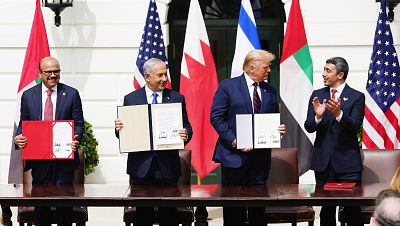The United States seeks Security Council support for Rabat’s autonomy proposal, which would eliminate the option of independence for the Sahrawi people.
Soldecanarias.net
The Western Sahara conflict has once again moved to the center of the international stage. Amid the reshaping of the global geopolitical order, Donald Trump has stepped up his diplomatic efforts at the United Nations to secure recognition of Morocco’s proposed autonomy plan, a project that would turn the former Spanish colony into a region under Moroccan control, with a status similar to that of an autonomous community.
The initiative, driven by Washington, aims for the UN Security Council to officially endorse Rabat’s proposal — a move that would, in effect, close the door to the Sahrawi people’s bid for independence. If approved, the plan could significantly alter the political, economic, and military balance in North Africa, with direct repercussions for the Atlantic region and particularly for the Canary Islands, located just over one hundred kilometers from the disputed territory.
Morocco’s autonomy plan has been on the table for years, but the current international climate defined by great power rivalry and the search for stability in the Sahel has given the conflict renewed prominence. For Morocco, winning US and UN recognition would mean legitimizing its control of the territory; for the Polisario Front and its supporters, it would represent a final blow to the right to self-determination that has guided the Sahrawi cause since Spain’s withdrawal in 1975.
The US position is raising concern across the region, particularly among Maghreb and European nations, who fear a new phase of diplomatic and military tension. Meanwhile, Sahrawi communities in the Tindouf refugee camps and in the occupied territories watch with growing unease as a process unfolds that could redefine their political future after five decades of stalemate and uncertainty.



